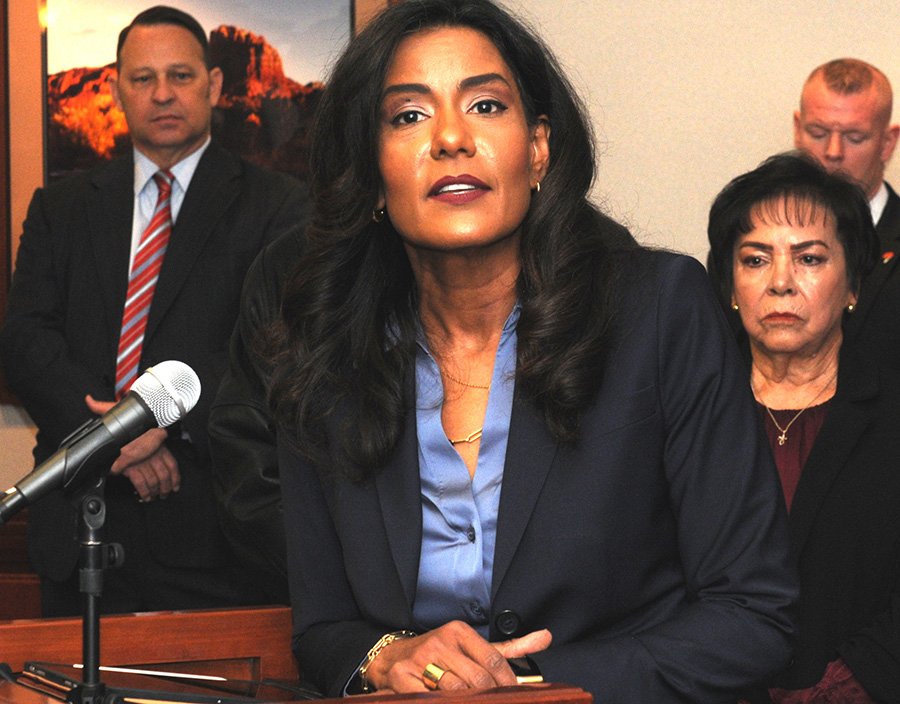Arizona Supreme Court
Governor Hobbs Makes History: Maria Elena Cruz Becomes Arizona Supreme Court’s First Black and Hispanic Woman

Arizona has made history with Governor Katie Hobbs appointing Maria Elena Cruz as the first Black and Hispanic woman to serve on the state Supreme Court. Cruz, currently a judge on the Court of Appeals, was selected from a list of five nominees provided by the Commission on Appellate Court Appointments, as mandated by law.
Cruz’s unanimous approval by the commission positioned her as a favored candidate. The governor highlighted the significance of this appointment, but was firm in her stance against framing it solely in terms of race or gender. “She is eminently qualified,” Hobbs stated, pushing back against implications that identity played a primary role.
Cruz herself reinforced the necessity of representation, questioning why a diverse state should have a Supreme Court that reflects only a singular racial demographic. “Why should the courts not reflect the population?” she asserted, emphasizing that a lack of diversity diminishes public trust in the judiciary.
Replacing retired Justice Robert Brutinel, Cruz pointed out that Arizona’s Constitution mandates consideration of the state’s demographic diversity during judicial appointments. Chief Justice Ann Scott Timmer highlighted the importance of geographic representation, noting that Brutinel was the only justice from outside Maricopa County. She stressed the need for perspectives that consider rural interests when evaluating legal regulations.
Cruz is now the sole Democrat on a court primarily composed of five Republicans and one independent. She shared that her path to the Supreme Court was not a premeditated ambition. Instead, her focus has always been on community service, particularly in regions like Yuma, regarded as a “legal desert.”
Reflecting on her personal experiences with the legal system, Cruz recounted the challenges she faced in obtaining legal counsel after a car accident, further motivating her career in law. “This is something I can do to help vindicate people’s rights,” she expressed.
Scheduled to be sworn in on Monday, Cruz tactfully avoided addressing immigration policy, stating that judges must refrain from commenting on legal issues not directly before them. However, she noted the importance of diversity in instilling public confidence in judicial decisions.
A native of Puerto Rico, Cruz moved to Arizona at 14 and has spent over three decades in Yuma. An alumna of the University of Arizona College of Law, she has held various positions within public and private sectors, including serving as a public defender and a judge for the Cocopah Indian Tribe.
Cruz’s innovative initiatives include the management of the Swift Accountable Fair Enforcement court program to curb recidivism and the establishment of Yuma County’s first restitution court, aimed at holding offenders accountable to their victims.
She stood out among four other nominees, which included Nicole Davis, Andrew Jacobs, Regina Nassen, and Alexander Samuels, all recognized for their legal expertise and community impact. Under constitutional stipulations, the nomination process ensured that no more than 60% of candidates come from the same political party, leading to a diverse slate of independents and Democrats being submitted for consideration.


















